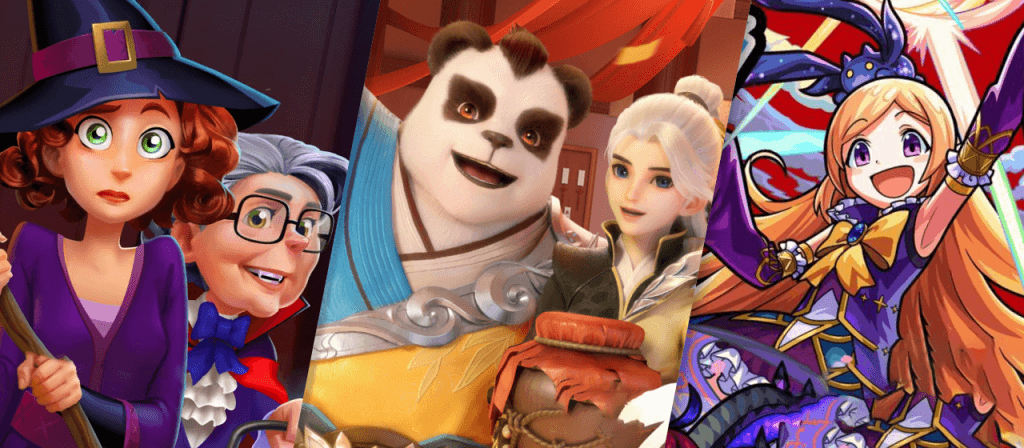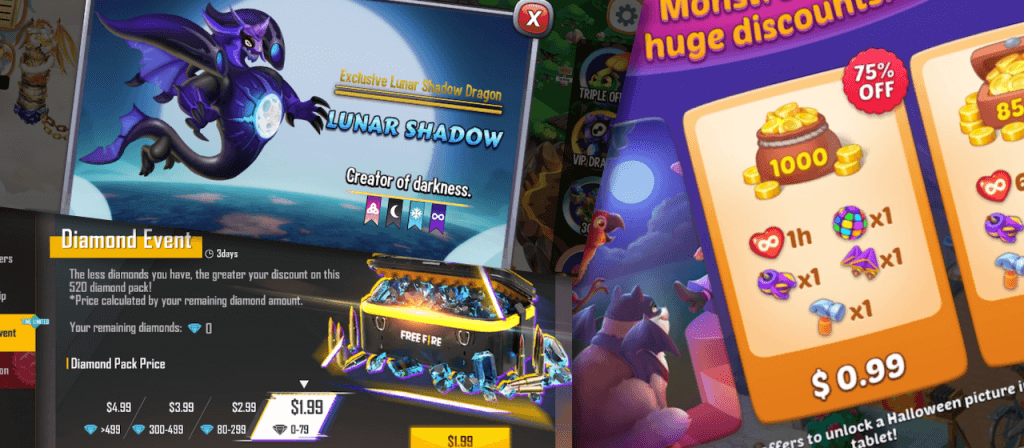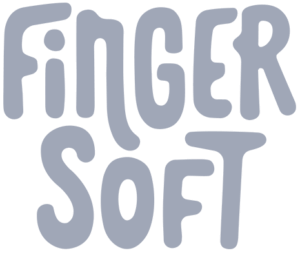In this episode of The Mobile Gamedev Playbook, we’re looking at diversity in the mobile games industry and how having a culturally and ethnically diverse team helps build better mobile games.
![]()
![]() BuzzSprout, TuneInRadio, iHeartRadio
BuzzSprout, TuneInRadio, iHeartRadio
– If you enjoy the episode, remember to hit subscribe!
Co-founder and Head of Analytics at GameRefinery, Joel Julkunen, shares his expertise on player motivations and expanding your player base by adding features that cater to wider audiences. He is joined by the HiDef team, Anthony Castoro, Jen Donahoe, and basketball legend Rick Fox. Together they discuss their individual experiences of being a minority in the games industry and how diversity and representation are central to HiDef’s corporate DNA.
You can also watch the episode on YouTube:
Topics we will cover in this episode:
- Diversity in mobile games
- HiDef
- Recruiting a diverse team
- Rick Fox
- How to take diversity into account when designing games
- The advantage of a diverse team
- Why diversity of perspective and experience is important when it comes to new technologies
- What the industry will look like in 10 years
Do you prefer reading instead of listening? Click here to read the transcription of the episode!
Introduction
Jordan: Hello and welcome to the Mobile GameDev Playbook. Thanks for tuning in for another episode. This podcast is about making great mobile games, what isn’t working for mobile game designers, and all the latest trends. I’m your host, Jon Jordan, and in today’s episode, we’re going to be talking about the importance of building a culturally and ethnically diverse team and why that’s important for making better games.
As part of that, we’re going to be talking about catering to a more diverse audience and understanding some of the underlying motivations of players, which also plays into these new diverse audiences that we see in mobile games. We have a jam-packed podcast, it’s going to be fascinating, and we have some great experts to talk about this subject. First up, we have Anthony Castoro, who is the co-founder and CEO at HiDef. How’s it going, Anthony?
Anthony Castoro: Going well. Thanks for having me on the show.
Jon: Good. We have a full set from HiDef today. Also joining us is Rick Fox, who is Chief Business Officer.
Rick Fox: Hey, Jon. A pleasure to meet everyone. Thanks for having us.
Jon: Also, Jen Donahoe, who’s Head of Publishing and Marketing.
Jen Donahoe: Hi, Jon, happy to be here. Big fan of the podcast.
Jon: Good. Glad to hear it. No introduction is needed for Joel Julkunen, who’s Head of Analytics at GameRefinery by Vungle. How’s it going, Joel?
Joel Julkunen: Hi, great to be here. It’s been a while.
Jon: It has. You’ve not been on the last few, have you? Good to have you back.
Joel: Yes, I haven’t been. It’s been my colleagues and other teammates, so I don’t know, Wilhelm and so on; it’s great to be here again.
Diversity in mobile games
Jon: Good. To kick us off, we’re going to take a view from you, actually, Joel. You can talk a bit about what you see in the mobile game space in terms of how games are starting to react to this. I think we’re in the early stages of really getting to grips in a fundamental manner, but we’re beginning to see some level of games allowing their audiences to fulfill different types of needs and motivations. Joel, kick us off with what you see in terms of those trends.
Joel: Sure, Jon. To begin with, I think when talking about mobile game development, I think you got to look at diversity from two angles or dimensions. The first one would be the so-called identity dimension, which includes players or your audience’s gender and race and orientation. Then there’s the other thing; the second dimension is the motivation dimension. That covers the reasons why certain players or your audience as a whole plays or then doesn’t play your game.
Suppose you think about it from that identity perspective. In that case, I believe that the mobile game industry has started to take steps in the right direction, together with other forms of entertainment media, talking about TV series, movies. However, there is still a lot of progress to be made. Of course, I’m glad to have our guests here today. They surely have much more insights on this subject from game developers perspective than myself, but when looking at the broader market, with GameRefinery, I’ve witnessed an increase in the amount of diversity and the choice players have, for example, regarding their avatar’s gender, orientation or appearance. This is especially true in genres that support these features, like interactive stories, adventure games, where immersion plays a big role. It seems that developers of at least these genres have started to realise that giving players the option and possibility to play with the character they actually relate to increases engagement, retention, and then revenue. Then certain game types and genres are not that so-called adaptable to reflect diversity from the identity perspective.
“It seems that developers of at least these genres have started to realise that giving players the option and possibility to play with the character they actually relate to increases engagement, retention, and then revenue.”
Joel on how allowing diversification increases engagement
If you think about generic match-three games, like Candy Crush, those games don’t have a clear element that could be reasonably looked at from this identity diversify point of view. This brings me to the other important angle that I think plays a significant role in player diversity. That’s the motivational dimension. Developers need to understand that area as well because, in short, we all play games for a bit different reasons. Some of us want to, let’s say, take a break from hectic everyday life to solve some puzzles or brainteasers. In other words, just relax a bit.
Then other people enjoy the adrenaline rush they get from beating other players in fast-paced shooter games. It’s worth noting that the same individual players might play different games to get the so-called fulfilment for different inner motivation drivers. Therefore, they might someday play Call of Duty for hours, but then other days, it might have been a rough day at work; for instance, they want just to relax, crushing candies and have a different experience. There, I think, lies the golden opportunity for developers, because if you have insights on what motivation drivers your current game build caters to, and then what are the key motivation drivers of your audience, you can develop the game of the direction that not only makes it more appealing to your current audience, but you can also open up more possibilities to acquire high LTV players from new player-occupied columns.
I think, as I said, there are two ways to look at this. It’s the identity level and then the motivation level. Both are important, I think. I hope that we continue the progress that we have started to make in both elements or dimensions.
“If you have insights on what motivation drivers your current game build caters to, and then what are the key motivation drivers of your audience, you can develop the game of the direction that not only makes it more appealing to your current audience, but you can also open up more possibilities to acquire high LTV players from new player-occupied columns.”
Joel on designing mobile games to cater to different motivational drivers
Jon: It’s interesting. Even on a very high-level aspect, when you talk about people choosing their avatars, I guess society becomes more thoughtful about diversity. I think it’s always been an element of avatars, where some people always want to play as themselves, and some people are much happier happy to play different genders, or the whole point is to not play as themselves. I guess as society gets more diverse, you want to reflect that in many different ways.
HiDef
Jon: Let’s talk a bit, Anthony, about your thinking in this area. You put your money where your mouth is with HiDef. The whole point of this is what you set up the company to do. Can you talk a bit of your thinking around this, what you hope the company will do, and how that will change the games being made?
Anthony: It’s innate to the company in terms of when we started HiDef, the four founders all being biracial, which that wasn’t the reason we started the company, but there was a moment, I think, where Rick and I and Jace were sitting around the table going, “There’s something different about us, right? We don’t look like a typical founders group when you usually see a press release about a company,” but our vision for what we wanted to do and what we wanted to build was always to be these technology wizards who can help craft the culture and create experiences that bring joy to as many people as possible. To do that, we have to be very inclusive. I think it’s pretty natural for us, because of our experiences, both in our personal lives and professionally, to want to create an environment both in the workforce and the products and for the audiences that we’re trying to address. Some pretty fundamental things drove us to make our own company do that. When I met Rick and Jace, I was working at another company, and they were working on some things related to that.
I left that company, and I think the last straw for me was my boss telling me that my coaching and mentoring and empowering management style was inappropriate. That was a moment for me to go, “Yes, I don’t think this is going to work out. I’m going to move on, and I’m going to go create a company where that’s okay.” Some of you might be aware of some of the things that Rick was doing before HiDef, and some of the environments that he found himself in at the highest level of partners where there is intolerance, and people felt like it was okay to use divisive language and racial epithets to make their point.
Rick took a stand about that. Those things happened just before we came across this idea and decided it was finally an opportunity for us to get into business together. A lot of that had to do with our belief that a diverse and inclusive approach both at the company level but also from an audience perspective and everything else, and you could see that represented in how, at the founding level, our fourth member, Dr David Washington is Chief Impact Officer.
That’s not something you see very often in a founding group, but I knew that when I started my next company, I wanted to make sure that we had a really foundational approach to corporate governance that related to all things about our responsibilities to how we treat our communities, our vendors, not just our investors, who are important, our employees. I think you can see through, and through that, we take that very seriously.
Recruiting a diverse team
Jon: I guess there’s framing this in multiple ways. One thing is, I think, the argument that by having a diverse group of people making a game, you’re going to make a better game. I guess that’s the one element of it. Equally, from another point of view, if you look at, I think, recruiting a diverse team is, I imagine, harder than not doing it. In a sense, do you feel like it is harder for you to do what you do to get the same level out as people who didn’t have this mission?
Anthony: That’s right.
Jon: When you talk to people, I guess the prime example you already mentioned is investors. Investors may care, but investors generally care about how much money they’re going to get out of the other end. They may have other secondary ideas. I don’t know, maybe I’m mean to investors here, but have you played with those? That’s quite a complex argument that I know you have to overcome.
Anthony: You’re right. There’s a certain element of what we have to do as a startup: we have to be pragmatic. We can’t fill positions that have to be filled because we can’t find a specific type of person to fill that role, and ultimately, that’s not exactly what this is about. As an aside, I will say, I’ve been very pleased and impressed by the quality of investors that we’ve come across who do actually care about these things. I think there’s definitely a sea change. The things that people care about when they’re investing aren’t just how much money you’re going to make. Although people are starting to realise that some of these things are good business, we’ll get to that in a minute. As people who have found success in our industry, we have a responsibility to try and help the industry move along and catch up with some of the other sectors in the space. If you look at film and television, in music, they’ve done a lot of work to get a diverse group of people into roles that provide direction, provide creative instruction into senior roles. The game industry is far behind in that. A lot of what we’re doing on the outreach side may not always be successful in having a completely diverse organisation. When people see people like us, I think, first of all, we start to see some outreach where they may not have reached out or felt as confident to reach out before.
“If you look at film and television, in music, they’ve done a lot of work to get a diverse group of people into roles that provide direction, provide creative instruction into senior roles. The game industry is far behind in that.”
Anthony on how the games industry is behind other industries when it comes to diversity
Also, we have to do a lot of work at the ground level, so working with universities and other programs and incubators that have these missions to help find those opportunities. Soon, we’ll be talking about some pretty significant investments that we’re going to make into empowering diverse content creators to help them get into the industry in the first place because there’s a definite pipeline problem. Yes, as an entrepreneur, we have to very carefully juggle how long and how much time we spend in any particular recruiting activity versus, “Hey, we have a business to do,” but as our social impact officer likes to say, “There’s nothing wrong with doing well, while you do good.” We’re trying to pay it forward by acting that way all the time.
Rick Fox
Jon: Okay. Rick, as we move on to you. Before I throw a question at you, maybe it’d be good for you to give a little point of the history of yourself. We’re all very much in the game space. I’m sure Americans will know who you are, but maybe not everyone in the game space outside America would know who you are. Do you want to give us a little point in history and explain a bit about your background?
Rick: Okay, I’ll try and keep it as quick as possible. To sum it up, my history is a background of media, sports, gaming, and entertainment. I’ve been a professional athlete for 15 years. Having played and lived on the stages of the NBA for those years, I developed, I think, an understanding of team dynamics and winning at the highest level, building group excellence. As I transitioned into TV and movies, being on a set was a similar experience. In that, I used my skills from the one field to transition over into the movie and entertainment world where, once again, group dynamics played a huge role in my life.
I love telling stories and finding a voice. Using my voice to share stories that change people’s lives was a huge part of the mission. I’ve always been a father. I continue to experience what it’s like to be rocket fuel for your young son or daughter’s life. For me, my son did not want to go into the family business of being an NBA basketball player. He had his own dreams. He wanted to be an Anthony Costoro. He wanted to be in Jace Hall. As he moved out to California to go to college, I realised in him his burning desire to find a way into the industry of games and wanting to have a life– Living a passionate life as a game developer. He had this muted sense of expression about it. Whereas I am very outward going and very expressed about what I want to do and who I want to be doing things with, he was a little more muted. For me as a parent, I thought, “How do I get behind his passion and show him and model what that looks like?”
As I stepped out into my network, Jace Hall was a dear friend of 12 years. He had made video games since the age of 18 and built Warner Brothers Interactive from the ground up. Fortunately for me, I had access to these men whose stories need to be told more frequently. Also, my son got to share time with them and his desire to look around in the industry and find people he could model his career after. He just wanted to tell the people visible to him.
He’s blessed to have these personal relationships. For me, as I discovered the quality and the level of talent out there in the world, just from my search myself, I found that for him, he was just one of many that have shared the same passion that Anthony did as a kid, Jace did as a kid. He just needed more of an understanding of the blueprint, the roadmap. He needed more of an opportunity to an open door. Now, my journey into the game space was through my son.
We became e-sports organisation owners. Then I got a deeper understanding through Riot Games and the experiences there with League of Legends of what it meant to build a game. I was fortunate to be behind the scenes and have conversations with game developers in an organisation willing to share that knowledge and experience with me. As I grew in my aptitude around that, my son grew as well. He got access that most people don’t get, but now he lives in the game world, living a life as a game developer.
He has gotten to know the very few, and we’re hoping a lot more, men and women who share his stories and that look like him. My passion being a part of his business with Anthony, Jason, Dr Washington, Jen, and the rest of our staff, is to be leaders in the space. To create a home in a company that speaks a language that the industry speaks and starts to be attentive to young men and women out there who have stories with a voice and a vision for the stories they want to tell.
That they can look out there in the world and see, it’s always helpful just to see people that sound like you, look like you, regardless of the language they speak, how tall they are. It’s just a comfort in that. Although our mission is just to make great games that speak to the masses, touch their hearts and see themselves in our games. They can play the games and create content themselves that they feel expressed through. That’s where we’re all going in the game space. We also want them to feel like what we’re creating is something they make and create themselves.
Jon: Good. I just want to say you’re very modest, but you were captain of the LA Lakers and won three NBA championships. That was something.
Rick: Yes, I won some championships, have a bloodline of basketball excellence.
How to take diversity into account when designing games
Jon: Okay, good. Jen, you have this idea of building out diversity, which in and of itself is useful and widens the scope of people looking up in future and coming into the industry, but how does this help players? How are you bringing this, I guess, foundational layer to the products and just being a nice social movement that you’ve got going there?
Jen: From a marketing and publishing perspective, I started in the toy industry for many years. My very first job was making Star Wars toys, and it’s been downhill since there. Then I transitioned into the game industry, and I’ve been at EA, Zynga, Riot Games, Scopely. The reason why I joined this company is everything that Anthony and Rick just said is, as a woman in games, and also as an LGBT member, it is very, very difficult to feel like my voice is heard in the making of games, let alone on the other side of it as a player that these games are made for me.
“As a woman in games, and also as an LGBT member, it is very, very difficult to feel like my voice is heard in the making of games, let alone on the other side of it as a player that these games are made for me”
Jen on how women/LBGT members aren’t represented in gaming
Now that I’m in the position of running, publishing, and marketing at a small startup, whose mission is to make games with a diverse voice because it is a better business outcome for players and for our investors to do this, I was just so honoured and blessed to be a part of this opportunity. I wanted to tell you a couple of stories about why this matters because number one is that there is data that says that this is true. A woman called Frances Frei, a Harvard Business School professor who worked with Riot and has many books on how diverse teams lead to better business outcomes and better cultural environments for the team making the game.
I encourage you guys to look up the work that she has done in that space. Two anecdotal stories that I’ve lived through in the world of making games. One is a little bit of an older story. I was at EA and as part of what I did at the EA was work with Hasbro, a company that makes famous board games; you might know them Scrabble, Monopoly, and children’s toy lines, and one of them was called Littlest Pet Shop. This is a product that is a bunch of cute little pets for 8-year-old little girls. At the time, I was making this game for the DS.
If you all remember the Nintendo DS, it had a very broad age group. The product team making our Littlest Pet Shop game was a group of designers who made the Godfather game, Tiger Woods, so games for really adult men. The team making this was actually in Salt Lake City, and so they had a lot of children, a lot of little girls, but they’re fathers, and so they said, “Jen, we’ve got this. We’re going to make the pets; we’re going to have them battle; we’re going to have them take down the evil pet.
I was like, “No, that’s not what little girls want.” I had come from the toy industry, so I knew what the play patterns were for little girls. I said, “Let’s test this with little girls; let’s take your idea and show it to them before we make the game.” Little girls crapped on the idea; they said, “No, we want hair play, we want to nurture them, we want to accessorise them.” This team of men realised that they were making the game for themselves and not for their daughters. They all went home, talked to their daughters, really understood what they wanted to do. That game went on to sell 4,000,000 units the next year around the world. A game for 8-year-old little girls on the DS was one of the top-charting games that year, so that’s just one example of not having a diverse group of people who realise the value of diversity. Now, Joel had a great point earlier about avatars, and we have seen this problem where normally, when you have avatars, you’re presented, “Do you want to be a male or a female?” As part of an LGBT community member, I am not non-binary, but I recognise that because I have a knowledge gap, I went out to my fellow community members and said, “Help us. What would you like to have and what would you like to experience as an avatar?” What was really interesting is we have some motion capture in the product that we’re building, and they said, “Well, did you record any motion capture with non-binary members?”
We looked at each other; we were like, “Oh my God, we didn’t. We will do that, and we will make sure that all of the accessories fit all characters. We will offer the opportunity for people to enter their own pronoun, or not have pronouns dependent in the game.” By really listening to that community and having them be an inclusive part of the experience, they were just thrilled to be asked their opinion and asked what they wanted. Those, in a sense, are fans for life; they’ve said, “Please invite us back.” People want to be heard, and ultimately, it’s just a benefit for everyone.
“By really listening to that community and having them be an inclusive part of the experience… People want to be heard, and ultimately, it’s just a benefit for everyone.”
Jen on how listening to different players will make your game better and create a fan for life
Sorry, super long stories, but hopefully, those touch on what is important. Joel and I will be best friends after this because he has the data to show that this is the right thing to do.
Anthony: Can I add something?
Jon: Yes, sure.
Anthony: Just anecdotally, one of the funny things about when you take the time to ask lots of different people what they want. As someone who’s been online– My career started in the online space; I was working on MUDs in the early ’90s and Ultima Online, Star Wars Galaxies, games like that, games with lots of avatar systems, so RPGs and things. To put into the game the requirements, in many cases of, “Hey, only these avatars can use these clothes,” for example, is more work sometimes than it is to just [chuckles] let people put whatever they want on.
“To put into the game the requirements, in many cases of, “Hey, only these avatars can use these clothes,” for example, is more work sometimes than it is to just let people put whatever they want on.”
Anthony on how creating clothes for all players is easier than making them gender specific
That’s not always the case, but often it is, and if we asked those questions and realised, “Oh, we don’t have to have these restrictions,” and sometimes it’s even less work to give people what they want. It’s one of the fascinating things about the game development process, the complexity of what we try to do, and the assumptions we make about what people want or don’t want if we don’t ask, or we don’t have a diverse group of people to have a conversation about it.
Jon: Jen, your story reminded me of a UK developer in the 1990s who made up a basketball game. Not only had they never played basketball, but I also don’t think they’d ever seen a basketball game at that stage before all these things happened. They quite happily went away and made a basketball game, which was not terribly successful. That’s the stuff you could do not that long ago.
Jen: I think the point is that you can do both, and hopefully, my story gives you a sense that you can be an ally, and you can spend the time as a developer to learn your customers. Giving a public service announcement for the GameRefinery platform as a startup, I would have had to spend hundreds of thousands of dollars doing my research to understand my customer’s motivations, feature prioritisation, and wants and needs. Still, I was able to go into the platform and identify quickly what the motivations are. What are the key features for the audience that we’re making our game? I was able to take that knowledge and that understanding and teach a team of people so that we have the common foundation of what does our players, what does our customer want and need? The developers love this because it helps them know how to make a better game by understanding what they want. What is it they want to play, and how do they want to play that? Then I can develop my innovative ideas as a game maker to make it a better experience. Thank you, GameRefinery platform, for all of that help expedite the work that I need to do as a marketing partner to my studio friends.
“I would have had to spend hundreds of thousands of dollars doing my research to understand my customer’s motivations, feature prioritisation, and wants and needs. Still, I was able to go into the platform and identify quickly what the motivations are.”
Jen on using the GameRefinery platform
Jon: So far, we’ve, I guess, spoken fairly generally around the topic. Anthony, what can you say about actually what you’re doing in a bit more of a concrete manner?
Anthony: Well, unfortunately, we’re not yet talking about the products that we’re building, but what I can say is that we’re building a diverse team. Suppose you look at the organisation that we’re building. I think this is a really important point we need to make clear. We’re not about excluding anyone, and our message isn’t that, “Oh, if you are part of the majority, that you don’t have a place.” We’re not saying that at all; what we’re talking about is having an open mindset, using good data, and thinking about the fact that creativity is the intersection of two seemingly unconnected, unrelated thoughts.
A great way to connect to unconnected ideas is to have people with different experiences working with each other. Another one is to research with an open mindset to look for new ideas and connections, and so we’re mobile-first, and we’re building a self-publishing organisation to bring our flagship game to market. We’ve announced a partnership relationship with Unity that’s going to help us do that.
“A great way to connect to unconnected ideas is to have people with different experiences work with each other. Another one is to do research with an open mindset to look for new ideas and connections.”
Anthony on how they come up with game ideas
Part of the reason that that is working so well is not only are they making tech that’s great for us that we can use to rapidly build our products, and on many platforms and all that, but also that company-like Unity is highly aligned with our vision there in terms of getting behind and actually putting money with what they’re talking about when it comes to social impact. Yesterday, D-Wash, Dr David Washington, interviewed Common for the keynote of the Unity for Humanity. We’re making sure that we’re also working with and partnering with companies that have this mindset, support this mindset, and it will help us reach diverse audiences.
It’s not hard to find; I think people are getting the message, which is exciting and building a product that we believe will have a global appeal that is very inclusive and lets people express themselves. When you throw all the keywords out there with metaverse, and crypto and NFT’s, and whatever, but all those things are just technology. Our focus on those is how do we create great experiences for the many and give them what they haven’t been offered before? That they’re excited to try new things. That requires us to build a team with all kinds of experiences.
It’s nascent right now, but it’s going really well. It’s an interesting challenge because building games is a team sport, and it always has been. It’s not the kind of thing you can do on your own.
“building games is a team sport, and it always has been. It’s not the kind of thing you can do on your own.”
Anthony on building games
The advantage of a diverse team
Jon: A great segue. Rick, as Anthony said there, I think there are fundamentals of building teams, no matter whether it’s a sport or a business or whatever sort of organisation is being built. What have you noticed– Is there anything in games that’s different from sports teams when you’re trying to make a well-balanced team? I guess basketball tends to be quite– Obviously, there’s a fixed number of players, actually, on the pitch, obviously, but a larger sort of an overall player count where games can get very big. Is there a scaling thing there? What’s your view on that?
Rick Fox: I’m working through it right now with my teammates here. I will tell you to Anthony’s point that the diversity around our organisation for the exploration and desire to see our team grow with many different voices and viewpoints is important, regardless of the size of your team. A, so I’m a group dynamics guy, so I love teamwork. I like going to work. I like being in environments where I can collaborate and grow with others, but at the same time, celebrate with others. Our hard work is what we do 24/7 here, and at the end of the day, it’s stressful.
We’re not always graceful amongst ourselves, maybe in the way we go about our work, but respect for each other is important. For those sports fans out there who also are game developers, can you imagine the NBA with just American players? How uninteresting would that be today? I grew up in an era where I was one of the first international players to play in the NBA in the ’90s when 99% of the players were just American. If you look at our beautiful game now, they’re in the NBA. The MVP, one of our best players, was an international player; Luca Doncic, my favourite player, is not an American player.
The diversity alone and what the game of basketball looks like is no different than the diversity you can find within a team; our team and our growth here at HiDef is centred on first, not only finding voices, unique voices and unique points of view, regardless of where they come from in the world, regardless of what their orientation is ethnicity wise, doesn’t matter to us. It’s that you have an expertise that we have looked globally for, and we’ve kept our minds and our hearts open to our team growing from that place.
“Can you imagine the NBA with just American players? How uninteresting would that be today? I grew up in an era where I was one of the first international players to play in the NBA in the ’90s when 99% of the players were just American.” — “The diversity alone and what the game of basketball looks like is no different than the diversity you can find within a team; our team and our growth here at HiDef is centred on first, not only finding voices, unique voices and unique points of view, regardless of where they come from in the world, regardless of what their orientation is ethnicity wise, doesn’t matter to us.”
Rick on the diversity of the NBA and how its similar to game development
Then once we get everybody in the huddle as you would say, being available for a point of view and being open and listening to the ideas that come regardless of different times, how passionately and ungraceful they could be, but having a lot of room and space for the team to grow from that place. For me, I’ve seen a lot of beautiful things happen in my life when excellence is pursued together. The ideas and the points of view are allowed to breathe.
We’re building teams like that.
As I share my vantage point and point of view, I lean on Jen; I lean on Anthony; I lean on my teammates to bring theirs to the table as well. I think it’s why we’ve had the fast growth and success we’re having is because we look the way we look, and we sound the way we sound, and we come from so many different angles.
Anthony: I have to jump in here because I’m sure that there are people who are just wondering, what is it like to have Rick Fox at your company? What does that bring to the table? What’s different? I’m sure people are interested in that. I’ve only known Rick for; I don’t know, four maybe five years at this point now. The last two years of working with him, it’s been enriching for me, but also just really fascinating too– Sometimes making these games, just trying to make a game, is a business.
When you’re doing it as a startup, it’s a tricky business; entrepreneurialism is a tough thing right now, going through COVID and stuff. Rick can really read other people and really get to the heart of the opponent team’s motivation? Which of those players is having a bad day? What is the strategy that these guys– Who should we– Everything from interviewing an employee or a potential employee, and then having the typical interviews that we usually have, having Rick involved in that process and then Rick calling me afterwards, he’s going, “Did you think about this because as you were talking, I had–“
I was like that’s– He’s really insightful into how people think, and I think there’s a reason he was a team captain on the Lakers. Also, when it comes to team dynamics. Now, there is a difference between being in the corporate world and being in the NBA. In the NBA, there were times when Rick was able to maybe get a little heated in a way that isn’t normal for the corporate world.
Rick: All of those, I would add– I have to share this, he’s so right when you bring that up. What happens in a locker room, or what happens in a huddle, what happens on the pitch, as you would say, isn’t necessarily the language that corporate America would speak, but so much of what, well Jens a sport and the athlete, so much of what I think I’ve learned from my peers, and being in business with Anthony, and Jace is finding– I’m growing and stretching as a human being, by being in circles where methods are different than what I’ve traditionally been used to having.
At the same time, I’m bringing a level also of execution and rhythm and methods, that is, stretching them. The beauty of that, like you, say, what’s an athlete like me doing in the game development space? It’s not what I studied. It’s not my core competence, but the gift for me in this experience, not only being a passionate game player, is that I’m learning what it means to build a game, but I’m also helping teach what it means to be a championship-level team.
That’s my gift to the group, and my service to the group and team is understanding how when it’s whether it’s Shaq or Kobe, who I played with, whether those two individuals don’t get along over a certain idea, finding a way to bridge their points of view, and have the value of that meet in the centre, and have something amazing come out of it. We did that for years. Anthony sharing that made me laugh.
Anthony: Am I Shaq, or am I, Kobe?
Rick: I say you’re Phil Jackson.
Anthony: I like that.
Rick: I equate a lot of those experiences, and I bring them to the company for that point of
view.
Jen: I wanted to add that Rick’s superpower– I am a footballer, so since– No, I’m a soccer player and a goalie even that, so I’m a little bit crazy, or a keeper. Rick superpower that he brings that bridges all of us together are his level of empathy. I think in the game space when as a woman, there’s a lot of locker room talk at many game companies to keep the sports analogies going. Still, because Rick brings this empathy and teaches us all this empathy, it allows everyone at our company we know we’re not going to have those experiences that Activision Blizzard is having or Riot has had in the past.
My view and my hope for this industry are that we get to the point where all of these negative stories about company culture, and the divisiveness happening, just go away because the level of empathy that we should all have for each other allows us to just view everyone, not as the same, but we all individual viewpoints as something important to bring to the table. That’s what I feel Rick’s superpower is for us right now. There are many, many others, but that’s just one.
“My view and my hope for this industry are that we get to the point where all of these negative stories about company culture, and the divisiveness happening, just go away because the level of empathy that we should all have for each other allows us to just view everyone, not as the same.”
Jen on where she’d like to see the games industry in the future
Why diversity of perspective and experience is important when it comes to new technologies
Jon: It is interesting. Anthony, you use the term the metaverse; I’m not going to say too much about that. Still, as the design of games becomes much more minor, non-linear and much more open, and games are going to have– For even for those quite feature-driven reasons you just, game developers are going to have to approach things in a very different way to. This is a game where you can shoot people. There’s a different culture that has to come out of those experiences. You can’t have the same people making, or you can imagine successful people-
Anthony: Absolutely. When it comes to technology, again, diversity of perspective and experience is important. I’m sure y’all are aware of the stories about what’s happened with AI; everything from facial recognition to– Technology gets biased built-in by the people that build it. Therefore, ergo if you have a more diverse perspective going into building the experiences, the technology, the things that underlie it, you’re maybe more likely to be inclusive in the outcome of that technology because I sincerely doubt that people who went to build facial recognition were like, “Ha ha ha, let’s make it, so it doesn’t work with black people.” That’s not what they were trying to do. If they had more diverse people working with them in the first place, they would’ve encountered those problems earlier on. They would’ve been thinking about those things maybe a little earlier, and that’s just the foundation. When it comes to crypto, NFT, metaverse, what are the experiences of the larger audience of the global perspective of humanity, not just the experiences of a small set of people in a homogeneous environment? That’s really all this is about.
“I’m sure y’all are aware of the stories about what’s happened with AI; everything from facial recognition to– Technology gets biased built-in by the people that build it. Therefore, ergo if you have a more diverse perspective going into building the experiences, the technology, the things that underlie it”
Anthony on having diverse perspectives in game design
Jon: I guess; again, I don’t know if you guys are doing a lot of user-generated content stuff, but that’s sort of embedded some degree in the metaverse, and I think that’s the most interesting thing because then the idea of what a developer becomes, I feel much more fluid in quite an interesting way, because you have different people interacting with the underlying product in very different ways, and very different experiences come from that.
Anthony: It’s very unpredictable, and it can be very nerve-wracking for the developers because you’re giving up some of your– Giving your baby to someone else, but you have to embrace that, right?
What the industry will look like in 10 years
Jon: Good, good. We’re coming to an end. Where do you guys see the industry being in 10 years on this level? Do we– Obviously, we’re at the very early stages of it? This is just something that very quickly becomes embedded into the DNA of making games, and we don’t talk about it because we don’t need to anymore. How fast does that change
happen?
Anthony: I hope that maybe inside of 10 years, we’ll be looking at data that people like you produce. That tells us that we’ve done a good job. The people who are playing the games are represented in what they’re hoping to have and their experiences with this similar data of who’s producing them that we can see from the results of the work and the effort that not just us but a lot of people are putting into this space. Those efforts are being rewarded by the users’ engagement and satisfaction with the play patterns and all of those things. We’re not even talking about this anymore because it’s good business ,to have lots of different perspectives when doing a creative endeavour.
Jon: Anyone else want to jump in on that?
Jen: I can’t wait till there are more women in the industry; sorry, I’ll get a little personal. At many companies, my whole career, even in the toy industry, women are 20%, and in some maybe 30, if it’s a diverse company, women are 30%. I think what you see now as players, especially when you look at the top charts in mobile or anything, half or even more of the revenue is coming from women as recipients or players of the game. What’s great is because women are playing more games.
I grew up playing Wizardry and Chop Lifter on the Commodore 64. I’ve played games my entire life. I grew up not seeing other people like me. Now that I’m getting to a stage in my career where I can pay it forward, and I can help more women get into making games that I love playing games. Like I said, that’s my mission that this company and where we are at this stage in the game industry is helping me do.
It’s the thing that I’m most excited about. Listen, I love making games. I’ve made many games, and by make, I understand that I’m their marketing person, but I’d like to think that I help a little bit.
Anthony: Hey, that’s legit. It’s a team sport.
Jen: It’s a team sport. Playing that role has been one of the most inspiring things for me and what motivates me, and why I come to work every day. It isn’t that I get a paycheck, It’s because I get to impact women and gaming in the future. It’s why I do what I do. Thanks to these guys for giving me that chance.
Anthony: Rick, you got anything you want to add?
Rick: No, I’m lost; I fell right there because I’m so proud to be in business with both of you. Really, to me, finding the future in games and being a part of that is a blessing because I’m growing as a human being. I’m growing because I’m learning more not only about making games, but I’m learning more about the world around me and the people in their voices and things that matter to them. When I can understand society from all these different points of view, I can impact and add value to others in my life.
When we talk about a metaverse, I just think that whether it’s ten years, whether it’s tomorrow, that as long as we’re moving towards greater inclusion and greater acceptance of what others have to bring and have to offer, then the happier I am, because I’m going to play games until I’m on my deathbed. I just hope that the people creating them and creating this user-generated content go from just their expression, through playing games, to their desire to find a way through technology to make them themselves, and tell their own stories.
Jon: Excellent. I think that is a brilliant point to say thank you very much to our guests, Anthony, Jen, Rick, and of course, Joel and Joel. Thanks, guys. That was fascinating. I think we only really started to get into what’s going to be a very deep topic for the game to industry, but I think that was a really good starting point from lots of different angles.
Anthony: Thanks for having us on.
Rick: Thank you, John.
Jen: Thank you, John.
Rick: Pleasure for meeting you, John.
Joel: Good. You too.
Jon: Thank you. Thanks, of course, to everyone listening and watching in the various forms in which this podcast videocast is presented. Please subscribe through podcast channels or on YouTube or the usual video places. It’s great if you have any feedback or give us some nice reviews. That’s fantastic. It helps other people find what we’re doing. Of course, every month, we talk to people like HiDef, who are building out this great new future of games, and games are changing and becoming very different. We are interested in covering that and supporting that. Hopefully, you’re enjoying it. Come back next time, see what’s going on in the Mobile GameDev podcast. Thanks.





















